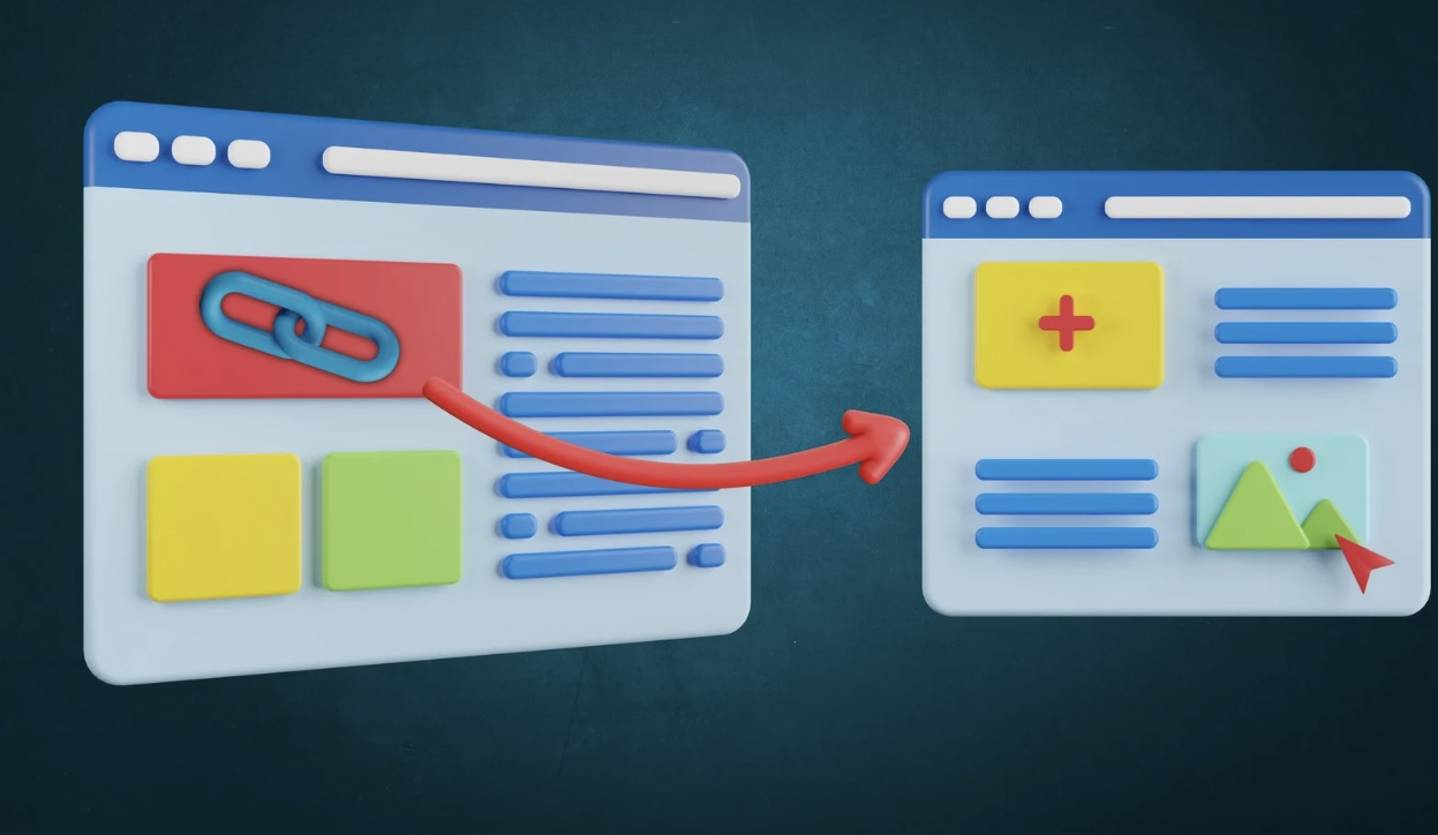Let’s start with a reality check: hyperlinks, the bread and butter of the internet, have somehow morphed from a tool for genuine content sharing into a full-blown commodity.
And it’s not just any commodity—it’s a currency of manipulation. Website owners, listen up.
Why are you working tirelessly, pouring thousands of dollars and countless hours into your site, only to roll over and hand out free links to others, especially those audacious enough to demand payment for a link from their site? Let’s unpack this madness.
Hyperlinks Aren’t Harmless; They’re Strategic Assets
Hyperlinks are often marketed as “mutually beneficial,” but let’s be honest—most of the time, the benefit is one-sided.
You’re not just giving someone a mention; you’re handing them a piece of your credibility, authority, and SEO juice. Meanwhile, they rake in the perks, climbing Google’s rankings and pulling traffic, all at your expense.
Sure, there was a time when linking out was about sharing great content and providing value. But now, backlinks are treated like some kind of underground currency—shady, transactional, and rarely in your favour.
The internet is littered with sites hawking their backlinking services, many of them with spammy tactics that devalue the very thing you’ve spent years building: your online reputation.
Why Do We Keep Falling for This?
Website owners are actively participating in their own exploitation.
Every time you slap a hyperlink into your meticulously crafted content without considering its implications, you’re giving away a piece of your empire. And for what? So the recipient can rank higher than you? Pull in your traffic? Use your goodwill for their gain?
Would you spend years building a brick-and-mortar business, only to let some random stranger plaster their advertisements all over your walls for free? Absolutely not. So why is it any different online?
The irony is palpable when websites that demand payment for their backlinks email you, asking for a free one in return. The audacity! It’s like someone handing you a bill after inviting themselves to your dinner table.
The Problem With Link-Begging Culture
There’s an epidemic of link-begging in our inboxes. “Hi there, we loved your recent post about XYZ. We think our article on ABC would be a great addition!” they say, oozing faux sincerity. Translation?
“Hey, you’ve worked hard for years to build your audience and authority. Mind if we piggyback off your success?”
No, Karen, I don’t.
The worst offenders? Websites that operate under a pay-to-play model. They’re happy to take your money if you want a backlink, but heaven forbid they reciprocate. Suddenly, your high-quality, well-researched site isn’t “a good fit” for their curated content.
The Cost of Linking Without Thinking
Here’s the brutal truth: every link you give out without a second thought is an investment you’ll never see a return on. Hyperlinks might be intangible, but their impact on SEO, authority, and traffic is very real.
And when you’re linking to low-quality or irrelevant sites, you’re essentially tossing a wrecking ball into your own domain authority.
Yet, there’s a deeper issue at play. Every hyperlink you hand out freely reinforces the narrative that backlinks are a free-for-all. You’re perpetuating a system where others feel entitled to your hard work without offering anything in return.
Let’s Change the Rules of the Game
So, what’s the solution? It starts with being intentional. Before linking to another site, ask yourself:
- Does this link truly add value to my audience? If the answer isn’t a resounding “yes,” don’t do it.
- Is this site offering anything in return? Collaboration is a two-way street. If they’re not linking back or providing some other value, why should you?
- What’s their motive? If it’s obvious they’re just trying to boost their own SEO, think twice.
It’s time to stop treating hyperlinks as throwaway favors. They’re not just strings of blue text—they’re endorsements. And endorsements should be earned, not begged for or traded in shady deals.
The Myth of Organic Backlinks: Why New Website Owners Are Forced to Buy Links
Building a website today is like opening a lemonade stand in the middle of the Sahara. You’re pouring resources into a venture that no one even knows exists until you’ve got the golden ticket: backlinks. But here’s the ugly truth—getting high-quality, organic backlinks for free is practically impossible.
If you’re a new website owner, you’ve probably already realised this cold fact. Despite the dream of a fair playing field, 99% of new sites are forced to buy backlinks to stand a chance in the overcrowded SEO game.
And while good links can skyrocket your domain authority, they’re expensive, and the process is riddled with landmines, from outright scams to shady practices that could get your site penalized.
The Pipe Dream of Free, Organic Backlinks
Let’s crush the fantasy right now: no one’s handing out free links to a brand-new site. In the early days of the internet, sure, it was all about collaboration and supporting fellow creators.
But in 2024? It’s every website for itself. Established sites guard their backlinks like dragons hoarding gold, and can you blame them?
Google’s algorithm weighs backlinks heavily in determining authority. If a respected site links to you, it’s like getting a golden stamp of approval.
But why would anyone with an established audience risk their hard-earned credibility on your fledgling site? Unless you’re solving world hunger or curing cancer, organic links are a pipe dream.
Forced to Buy Backlinks: The Harsh Reality
So, what do you do when no one wants to link to your sparkling new blog or business? You buy backlinks. Welcome to the dark side of SEO.
But let’s not sugarcoat it—good backlinks don’t come cheap. The more authoritative the site, the more zeros you’re adding to that invoice. And even if you manage to scrape together the cash, there’s no guarantee you’re getting what you paid for.
You might think, “I’ll just find some affordable services.” Bad idea. Most cheap link-building services are scams or, worse, outright harmful to your site.
Think spammy directories, irrelevant foreign websites, or Private Blog Networks (PBNs) that could get your site blacklisted faster than you can say “Google penalty.”
The High Cost of Ethical Link Building
If you want links that actually help your SEO without risking penalties, you’re looking at big bucks.
Guest posting on a reputable site? That could cost anywhere from $500 to $5,000, depending on the niche and site authority. Editorial mentions? Don’t even think about it unless you’ve got a PR team working overtime or the budget to hire one.
The Catch-22 for New Website Owners
Here’s the vicious cycle: to build domain authority, you need backlinks. To get backlinks, you need domain authority. It’s like being told you need experience to get a job, but you need a job to get experience.
So, what’s a new website owner to do? Beg for scraps on forums? Spam your inbox with “collaboration” requests that everyone knows are just link begs? Or dip into your savings to buy backlinks that may or may not work?
The Path Forward: Is There Any Hope?
While it feels bleak, there are ways to navigate this backlink quagmire:
- Focus on High-Value Content: Create resources so good that people genuinely want to link to them. Yes, it’s harder than it sounds, but it’s your best shot at earning organic links.
- Build Relationships, Not Transactions: Network with other site owners in your niche. Genuine connections can lead to mutually beneficial collaborations over time.
- Avoid the Bargain Bin: When buying links, stick to reputable sources. If it seems too good to be true, it probably is.
- Play the Long Game: SEO isn’t a sprint; it’s a marathon. Domain authority takes time to build, and shortcuts often lead to penalties.
The Outrageous Cost of Hyperlinks: Why Are We Paying a King’s Ransom for a Single Link?
Let’s talk about the absurd reality of buying hyperlinks. Yes, buying hyperlinks. Something that, in theory, should be about genuine collaboration and value exchange has been transformed into an overpriced, borderline exploitative industry.
And if you’re a website owner trying to grow your domain authority, prepare to pay through the nose: anywhere from $50 to $1,000 for a single backlink from a trusted, high-authority site.
That’s right—a single. Link. One string of text wrapped in blue, costing as much as a weekend getaway or, worse, a month’s rent in some places. Let’s unpack the lunacy of this situation.
Hyperlinks as a Currency: Who Set These Prices?
Who decided the market value of a hyperlink should rival luxury goods? Is there some secret cartel of website owners inflating these prices?
The reality is, high-authority websites know exactly what they’re doing. They’ve cornered the market on digital credibility, and they’re charging a premium to share even a sliver of it.
And the justification? “Oh, it’s an investment in your SEO.” Sure, but why does that investment cost more than what some people spend on groceries in a month? It’s like being told you have to pay for the privilege of parking in their driveway while they enjoy the ride.
The Range of Madness: $50 to $1,000 Per Link
If $50 sounds “reasonable,” let me assure you it’s not. A $50 link usually lands you on a site no one cares about—a place so irrelevant even Google’s bots struggle to justify crawling it. But the $500+ links? That’s where it gets truly galling.
Those are the links from real websites, ones with decent traffic, strong domain authority, and actual readers. You know, the sites you actually want to be linked to.
But good luck negotiating anything under $500. And the $1,000 club? That’s for the elite—a backlink from a high-traffic, high-trust site, often buried somewhere no one will see, unless they scroll to paragraph seven of an obscure blog post.
It’s highway robbery dressed up as “SEO strategy.”
The Irony of Paying for Trust
What’s worse is the irony: paying for trust. A hyperlink from a trusted site is supposed to signal that your content is worth sharing, that your website is credible.
But when you’re forking over hundreds—or thousands—of dollars for that endorsement, it stops being about trust and starts being about leverage.
Imagine paying someone to say they like your product. That’s essentially what’s happening here. It’s a digital bribe, plain and simple. And the worst part? Everyone’s playing along, pretending it’s just the cost of doing business.
Who Benefits?
Spoiler: it’s not you.
- The High-Authority Websites: They’re laughing all the way to the bank, monetizing the trust they’ve built over years—sometimes decades.
- The Middlemen: Agencies and “link brokers” are pocketing hefty margins for connecting you to their Rolodex of overpriced websites.
- Google: Yes, even Google benefits. Their algorithm is designed to favor backlinks, which perpetuates this broken system.
The only one not benefiting? You, the website owner desperately trying to climb the ranks in search results without draining your savings account.
The Cost of Doing Nothing
Here’s the real kicker: if you refuse to pay, you’re stuck. Without quality backlinks, your domain authority stagnates, your traffic plateaus, and you’re effectively invisible in the digital landscape. It’s a pay-to-play game, and opting out feels like professional suicide.
The Hidden Cost of Giving Out Links: Why Every Link You Share Weakens Your Website
Let’s get real about the truth of giving out hyperlinks: it’s not the selfless act you’ve been led to believe. While the internet might preach about sharing and community, every single link you give out weakens your own website.
Yes, you heard that right—it makes your site weaker. This isn’t just speculation; it’s how the digital game works, and it’s time website owners woke up to the harsh reality.
The Dilution Factor: The Hidden Cost of Generosity
When you give out a link, you’re essentially sharing your website’s authority—your hard-earned SEO value—with someone else. Think of your site’s authority as a pie.
Every time you hand out a link, you’re slicing off a piece of that pie and giving it away. The more slices you give, the less you have left for yourself.
Google’s algorithm is smart, but it doesn’t see links as unlimited goodwill tokens. Instead, it views them as endorsements. By linking to another site, you’re telling search engines, “Hey, this page is relevant and valuable.”
That’s great for the site you’re linking to, but for your own site? Not so much. Every endorsement chips away at your own authority—especially if you’re not selective about where your links are going.
Outbound Links Don’t Help You—They Drain You
The internet’s SEO gurus might tell you, “Oh, external links are good for credibility!” Sure, if you’re linking to a highly authoritative site, it might boost the value of the page you’re linking to.
But what about your site? The reality is, external links don’t directly help your site in the grand scheme of SEO. Instead, they divert the authority you’ve built and distribute it elsewhere.
This is called link juice, and it flows out every time you hand out a link. Imagine your website is a bucket of water. Every link you add is a tiny hole in that bucket, and over time, your SEO value—the water—starts to leak out.
The Myth of Reciprocity
You might think, “If I link to others, they’ll link back to me.” Spoiler: that rarely happens. The internet is not as altruistic as you think. In most cases, those you’re linking to don’t even notice, let alone feel compelled to return the favor. Meanwhile, your authority continues to bleed out, link by link.
Even worse, some sites outright abuse this generosity. They’ll happily accept your link while charging you a hefty fee if you ask for one in return. It’s a one-sided exchange, and you’re the one losing.
What About Internal Links?
Ah, now we’re talking. Internal links are a completely different story. These links keep your authority within your own site, helping distribute value across your pages. They strengthen your website as a whole, guiding users and search engines to the content you want to highlight.
External links, on the other hand, are a one-way ticket out of your ecosystem. Unless there’s a compelling reason to include them, you’re better off keeping that link juice in-house.
The Harsh Truth for Website Owners
Let’s face it: most of us are not running charities. We’re building websites to grow our businesses, share our ideas, or make a living. So why are we giving away one of our most valuable assets—our authority—for free? Especially when the sites we’re linking to wouldn’t think twice about charging us for the same favor.
It’s time to rethink the way we approach links. Before you hit “publish” on that blog post with a dozen outbound links, ask yourself:
- Does this link genuinely add value to my audience?
- Is this link helping my site in any way?
- Would this site ever link back to me without charging?
If the answer to these questions isn’t a resounding “yes,” maybe it’s time to reconsider.
Hyperlink Summary
Website owners, wake up. Stop letting others capitalise on your blood, sweat, and tears. Hyperlinks are your hard-earned resource, not a free handout.
If someone genuinely deserves a link, great—share the love. But if they’re just trying to use your site as a stepping stone for their own success, slam that door shut.
The internet is a battleground, and backlinks are the weapons. For new website owners, it’s almost impossible to play the game without shelling out money.
But the risks of buying bad links—and the rampant scams in the link-building industry—make it a treacherous path.
Still, the question remains: why has something as fundamental as a hyperlink become so commodified? And how did we get to a place where the cost of entry into the digital world is so steep?
Until these questions are addressed, new website owners will remain stuck in this unfair, cutthroat system, struggling to make their mark in a game that seems rigged from the start.
The link-building market is driven by several factors, including the website’s domain authority and the niche it serves. However, average prices per link typically fall into three categories:
- Low End: $50 – $200
- Medium End: $200 – $600
- High End: $600 – $5,000
While these figures can vary depending on the quality and relevance of the link, they highlight the steep costs businesses face when trying to boost their domain authority through backlinks.







